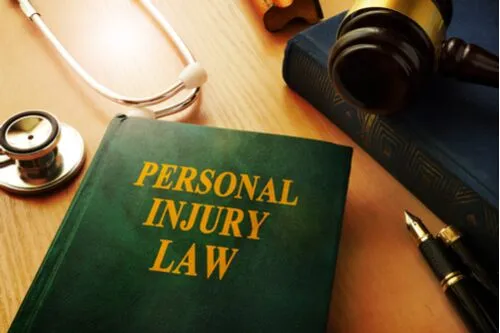If you’ve been involved in an accident, pursuing a personal injury claim could help you obtain compensation for medical expenses, lost wages, and other damages. Successfully navigating the claim process can be challenging, so here are key steps to bolster your case.
1. Know the Key Elements of Your Case
Before diving into the claim process, understanding the essentials of a personal injury case is vital. You’ll need to demonstrate:
- You sustained an injury due to the incident.
- The injury was caused by the other party’s actions or failure to act responsibly.
- The other party had a duty to prevent the harm you experienced.
Sticking to these core points will keep your case clear and organized, making it easier to gather the evidence needed to prove each one.
2. Get Medical Attention Promptly
No matter how minor your injuries may seem, it’s important to see a healthcare provider right after the accident. This serves two purposes: it protects your health, and it also creates a formal record of your injuries and the connection to the incident. The longer you wait, the easier it may be for the opposing party to argue that your injuries were unrelated or less severe.
Following your doctor’s advice for treatment and recovery is equally important. If you don’t follow prescribed medical advice, the other side may argue that your condition worsened due to neglect on your part, not from the initial incident.
3. Gather Every Piece of Evidence
Building a successful case requires solid evidence. This will support your claim and show the extent of your injury and the related costs. Helpful evidence includes:
- Medical records and treatment expenses
- Documentation of income lost due to missed work
- Any accident reports (like police reports for car accidents)
- Photographs of injuries and the accident scene
- Statements and contact information from witnesses
- Video footage from the scene, if available
Keeping a journal of your daily experience — such as how the injuries limit your activities, pain levels, and treatment sessions — can be very valuable. This personal record helps convey the ongoing impact of the injury, giving a fuller picture of its effect on your life.
4. Steer Clear of Social Media Risks
It may feel natural to share updates on social media, but posts about your accident, injuries, or day-to-day activities could be misinterpreted and harm your claim. Insurance companies or defense attorneys might look at your social media for information that appears to contradict your statements or implies you’re exaggerating. For instance, even saying “I’m okay” in a comment could work against you if your case hinges on showing a severe, lasting impact.
To avoid unnecessary issues, limit or avoid posting about your condition or case details until the claim is resolved.
5. Be Wary of Speaking with Insurance Adjusters
Often, insurance adjusters will contact you soon after the accident to discuss your injuries or propose a quick settlement. While they may seem helpful, remember that they work for the insurance company and may aim to reduce the payout.
You’re not required to share detailed information, so stick to the basic facts of the incident (like the time and place). Avoid discussing your medical condition in depth, and if asked about your injuries, simply mention that you are continuing to receive treatment. This approach helps ensure your claim reflects your injuries accurately, especially if complications arise over time.
6. Work with an Experienced Personal Injury Attorney
Enlisting the help of a qualified attorney can make a substantial difference in your case. Personal injury attorneys are skilled in gathering evidence, negotiating with insurers, and understanding which damages you’re entitled to pursue. Many attorneys work on a contingency basis, meaning they only receive payment if you win, so the upfront financial risk is minimized.
An experienced attorney can often negotiate a much higher settlement than what you might receive without representation. This is due to their knowledge, resources, and experience in dealing with insurers and preparing cases.
7. Prepare for the Possibility of Trial
While most personal injury claims settle outside of court, there may be instances where trial is the best option for achieving fair compensation. Being open to the idea of a trial ensures that if a low settlement offer is on the table, you have the leverage to pursue further options.
To be well-prepared if your case does go to court, follow the steps outlined above to build strong evidence and seek the guidance of an attorney skilled in courtroom proceedings. A thorough, organized approach — including consistent medical treatment, comprehensive documentation, and careful communication — lays the groundwork for a successful outcome, whether through settlement or trial.
By following these practical steps and working closely with an experienced attorney, you can strengthen your claim and maximize the chances of a favorable result. Taking a strategic approach will help ensure you’re positioned to receive the compensation you need and deserve.
Contact our Saint Joseph car accident lawyer if you have been in an accident and need help. We will help you with your claim.
Keep an eye for more news & updates on Buzz Slash!




